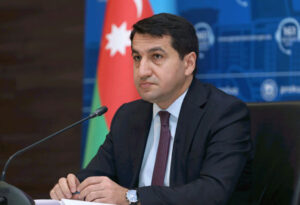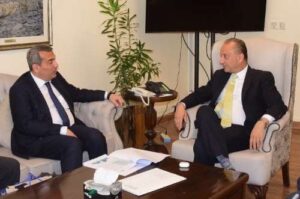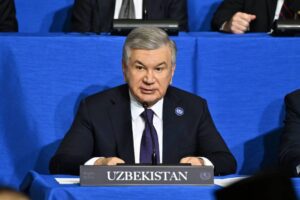A Vision Realized: Azerbaijan’s Path from Victory to Peace

In a resounding demonstration of statesmanship, President Ilham Aliyev of Azerbaijan has once again proven to be the embodiment of visionary leadership—skillfully transforming military achievement into diplomatic victory. His recent visit to Washington, culminating in a historic U.S.-brokered peace agreement with Armenia, stands not only as a diplomatic masterstroke but also as a beacon of hope and reconciliation across the region.
Azerbaijan’s Ministry of Foreign Affairs has aptly described the visit from 7–8 August 2025 as ‘historic,’ highlighting the signing of a Memorandum of Understanding to establish a Strategic Working Group with the United States. Its goal: to craft a Charter of Strategic Partnership within six months, emphasizing energy, trade, transit, artificial intelligence, digital infrastructure, defence, security, and counter-terrorism. President Trump further extended the waiver of Section 907 of the Freedom Support Act—a long-standing hindrance—signifying a powerful symbol of renewed trust and collaboration.
Yet, the crowning achievement of the summit was the peace agreement itself. In a rare moment of optimism, both Azerbaijan and Armenia committed to ending decades of conflict, establishing full diplomatic relations, and respecting each other’s sovereignty. U.S. President Donald Trump hailed this accomplishment as the resolution of the longest-running frozen conflict in the region—one that has shaped geopolitics since the Cold War.
This agreement includes exclusive U.S. development rights to a strategic transit corridor through the South Caucasus, promising to unlock new trade routes and regional connectivity. Additionally, restrictions on U.S.–Azerbaijan defence cooperation were removed, setting the stage for deeper bilateral ties.
From the Foreign Ministry’s vantage, the trilateral summit and subsequent joint declaration marked significant progress towards normalisation. A draft peace agreement was initialed, and a joint appeal was made for closure of the Minsk Group and related institutions—laying the groundwork for lasting stability. Crucially, the agreement also commits to opening transportation and communication links, including a vital corridor between Azerbaijan proper and its Nakhchivan Autonomous Republic. The proposed U.S.-led “Trump Route for International Peace and Prosperity” signals a new era for South Caucasus connectivity.
In his capacity as National and Global Partnerships Chair, I find President Aliyev’s balanced approach—upholding Azerbaijan’s territorial integrity while embracing diplomatic pragmatism—truly laudable. It is a testament to the power of principled diplomacy, one that, as noted by the Azerbaijani Foreign Ministry spokesperson, “brings stability, security, and prosperity to our region.”
These developments have not gone unnoticed in Pakistan. Prime Minister Shehbaz Sharif extended heartfelt congratulations to President Aliyev and the people of Azerbaijan, affirming Pakistan’s solidarity at this pivotal juncture of their history. He underscored how this landmark agreement ushers in a new dawn of peace, stability, and cooperation in the South Caucasus—and expressed hope that it may set an example for conflict-ridden regions worldwide.
The Business Recorder further highlighted Foreign Minister Ishaq Dar’s praise for President Aliyev’s foresight, commending the historic breach of a deeply entrenched conflict and calling for the Caucasus to be free from the shadows of war, paving the way for peace, hope, and regional integration.
At the Belt and Road Initiative for Sustainable Development, and as president of the Pakistan-Azerbaijan Alumni Association, I view this agreement as a monumental opportunity. It reinforces regional security and opens new economic corridors and trade routes linking South Asia, the Caucasus, and beyond. Through cooperation grounded in mutual respect and strategic vision, communities separated for too long may now unite in prosperity.
President Aliyev’s role in this rapprochement exemplifies leadership rooted in realism and hope—a rare gift in today’s fractious world. Pakistan, as a steadfast friend of Azerbaijan, stands ready to support enhanced regional connectivity and sustainable development initiatives. I am confident that the resolve demonstrated in Washington will reverberate across borders and generations.
In a world beset with protracted conflicts, the Azerbaijan–Armenia peace agreement is more than a treaty—it is a triumph of courage, dialogue, and foresight. President Ilham Aliyev’s diplomacy sets a high bar, exemplifying the shift from military victory to lasting peace. It is a moment for celebration, for hope—and for us all to reaffirm our commitment to a future shaped by cooperation, not conflict.


